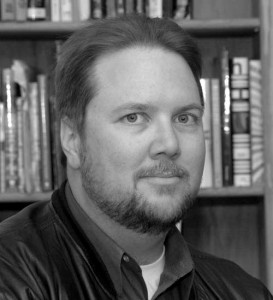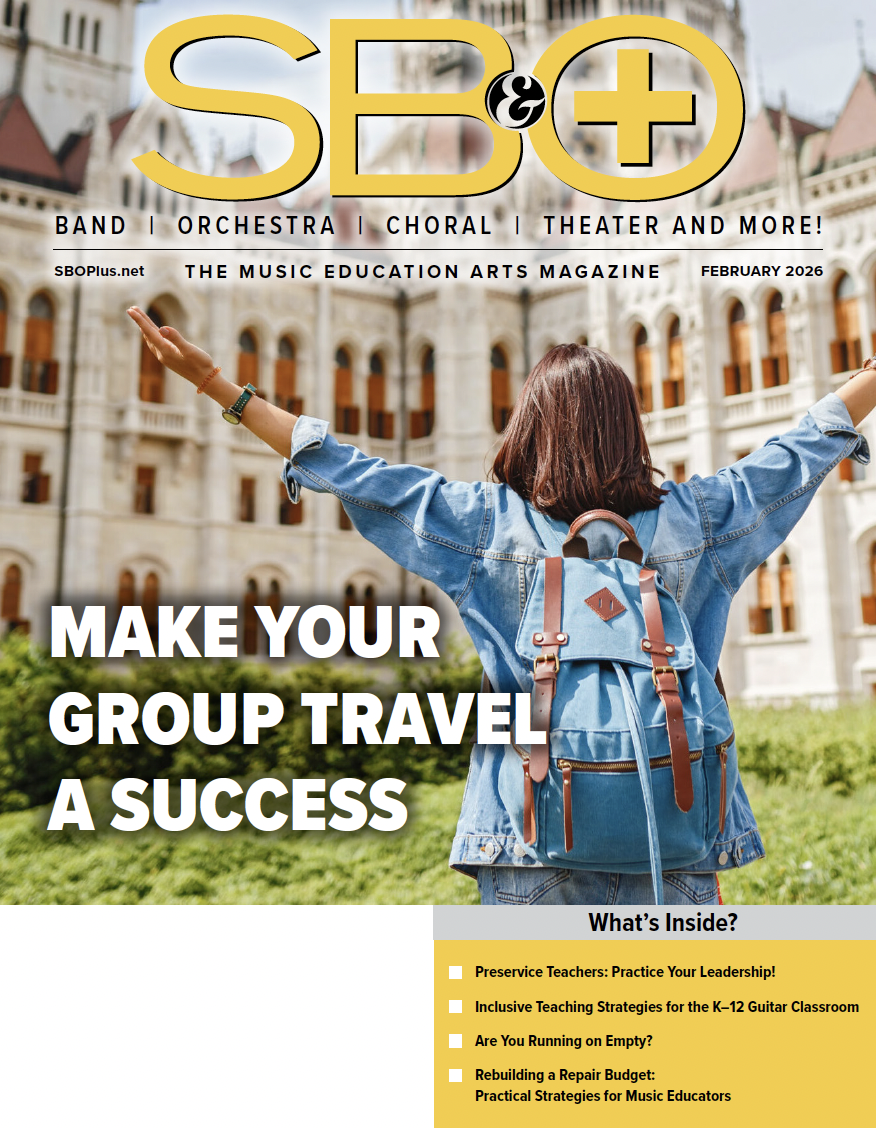At the forefront of the movement to revolutionize music instruction is the Technology Institute for Music Educators (TI:ME). A non-profit organization that boasts a tagline of, “Helping music teachers integrate technology since 1995,” TI:ME maintains an impressive array of resources for educators including workshops, conventions, and online forums.
Mike Lawson has been affiliated with TI:ME since it was founded and currently serves as the organization’s executive director. In this recent conversation with SBO, Lawson speaks about how technology can help music teachers engage a new generation of music students.
School Band & Orchestra: What areas of music instruction have benefitted the most from technological innovation?
Mike Lawson: Because of the longstanding history of MIDI and notation, music theory was really the first implementation of technology in the music classroom. Those go hand in hand with being able to interactively and visually teach theory. Instead of handwriting notes on mimeographed paper, you can place notes, hear them, see them, and play them. And this is throughout all grade levels – there are educators using technology to teach basic theory to elementary school kids up through college.
SBO: Aside from the historical angle, does that also jibe with your own interactions with educators?
ML: The biggest opportunity I’m seeing today is how technology is being used to draw interest from non-traditional music students. TI:ME came around originally because there was a decline in traditional music program enrollment: marching band, chorus, and so on. With declines in enrollment come cuts in funding. If students aren’t interested in something, it won’t get funding. TI:ME recognized early on that when you offer non-traditional courses – guitar lessons, recording software, and so on – there where often waiting lists for kids to take the classes, and with waiting lists comes more interest from administrators to fund the programs.
What’s happening now is that we have some really pioneering, innovative teachers who are using everything from Garage Band on an iPad to full on work stations set up with keyboard audio interfaces and a variety of applications. There’s really no limit on the brands and flavors of software that people are using.
SBO: What do you see as the biggest hurdles for educators to integrate new tools into their teaching?
ML: The biggest challenge is not pedagogy or finding resources, it’s selling their administrators on modernizing the centuries-old methods of teaching music. We have a lot of excited teachers who want to integrate technology in the classroom, but it’s the funding to set up the equipment – even the basic workstations – that can be most challenging and frustrating for educators.
SBO: With so many different types of tools out there, where do you draw the line between technology that is necessary to keep up with modern times versus luxury items?
ML: We could have that discussion on math, as well. It was fine to teach math with an abacus for years and years – they didn’t even have pocket calculators not that long ago. Now, everyone is required to purchase an $80 graphing calculator. I think it comes down to, frankly, some personal priorities and affinities for the arts within administrations. There are some public school programs that have much more emphasis on things like sports or other pet projects by administrators. The administrators who favor music and offering their students the best possible learning environment are the ones who step up to the plate and help the teachers solve the problem of getting more kids interested in the arts and in learning music. At the end of the day, our goal is not to teach technology, but to teach music – and to use the latest technology to do it.
SBO: Along those lines, what would you recommend for educators who may not be early technology adapters?
ML: I would recommend two things. First, they should join TI:ME. I say that now more emphatically than ever because we have reinvented who we are this year in terms of what we offer our members and the ability of our members to network with other educators. There is no easier way to solve some of these problems than through discussion with people who have been through it. A teacher might come onto our system and say, “I’m kind of new to all of this. Where should I start?” Other educators will join the discussion, either in public or in private, explaining options. So that’s a good place to start.
We offer courses around the country, and we also have some events that could be very helpful. The events move every year, and our National Conference is an excellent place to learn. This year it’s going to be in Texas alongside the TMEA show. It’s basically going to be three-and-a-half or four days of training. Then, a month later, we’re doing the same thing in Ohio, for people that might not be able to get to the Texas show.
Networking with peers is the best first step anyone can take, and TI:ME provides a great place to make that happen, with people who are actually doing this. Many of our members are already using this stuff in the classroom. Most of them have already implemented some kind of program.
I also can’t recommend YouTube enough, and there are some wonderful Facebook groups that educators can get involved with.
SBO: Do you see a dramatic generational gap in terms of which educators are adapting the latest teaching tools?
ML: Part of what’s going on here is a changing of the guard that is slowly starting to happen. There are a lot of band directors moving towards retirement. The older band directors are the ones who are least likely to adapt. Many of the newer ones coming in are already familiar with some of the more widespread music software, but they still haven’t spent a ton of time doing audio production or recording. Those educators could still benefit from some training on a basic understanding of the physics of sound and how to explain that to kids. The bottom line is that TI:ME wants to help teachers figure out how to solve these problems.
SBO: What problems are you referring to that technology can really address?
ML: I knew from the age of eight or nine that I was going to be a musician. From the day I got my first guitar, I knew that this was what I wanted to do with my life. My musical education opportunities in public schools growing up in the ‘70s and ‘80s were extremely limited. Any aspirations outside of marching band and choir were highly discouraged by the music educators of that era – in my school, at least. I took music classes in spite of that, because I had a desire to learn. I know that there are a world of students out there who would be life-long music lovers if they were able to have some hands-on technology in front of them that could help make sense of complicated musical processes.
These days, kids are into all different kinds of music, and you have to hit them where they live. The electronic tools, software, controllers, all of these things ignite the spark and get them interested. A certain percentage of those sparks are going to turn into raging fires. I see technology in music education as a means to igniting that spark and start a fire in some of these kids that will burn inside them for the rest of their lives. So what if they’re initial interest is making beats or loops or dropping samples? Get them interested, give them some gratification, let them see some progress in what interests them, and it will grow from there.
I don’t want to give the impression that I’m down on traditional band directors, because I’m not; they play an important role and truly music can be taught without any technology. I would just encourage people to not discount new ways of doing things, to not look at new tools as toys or cheats to learning music just because we had to learn the hard way when they were growing up.
We don’t know who we’re teaching, what the kids in our classes are going to go on and do. There is that opportunity now to reach a whole new level of students and interest them in music. You never know if another little Miles Davis is sitting there and drawing inspiration from being able to put something together, someone who might decide, “You know, instead of dropping that trumpet sample down, I’d like to learn to play it myself.” That’s what we’re hoping to ignite. TI:ME wants to be here to support interest in music and adapting technology to teach music with. Again, we’re not here to teach technology, we’re here to teach music and let technology aid in that.
























